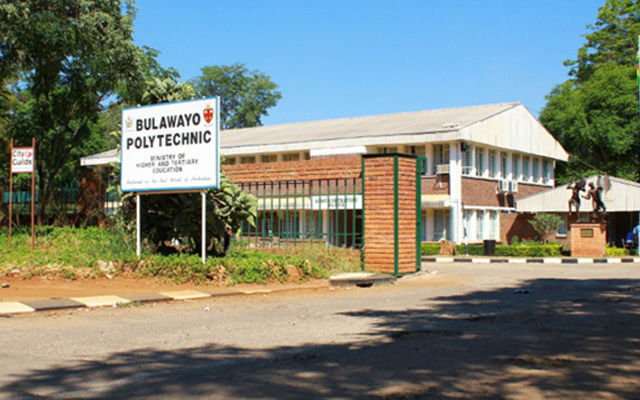Transformation of polytechnics long overdue

Samantha Chigogo : Features Correspondent
For almost a century polytechnic colleges have churned out 70 000 graduates for occupations across the industrial sector. The colleges have long merited the distinction of offering hands-on, industry-standard instruction. However, graduates sometimes face the challenge of upgrading to a degree after college, as companies are increasingly scaling up academic requirements for prospective employees.While such a route combines the best of both worlds, it has the downside of doubling the cost and duration of obtaining entry-level qualifications.
Over the past two years, polytechnic colleges have been responding to the problem by upgrading to degree-offering institutions, a transformation which is now at an advanced stage.
This week, Government endorsed the transformation, reasoning that the move will promote entrepreneurship and revive industry.
Under the impending dispensation, polytechnic colleges will not convert into universities but will continue running the same technical programmes with a broader capacity and the authority to award degrees.
Minister of Higher and Tertiary Education, Science and Technology Development Prof Jonathan Moyo said the colleges are likely to start offering degrees by the beginning of the 2018 academic year.
The degrees to be offered by the colleges are expected to be distinct from those being offered by universities, drawing on the traditional strengths of the colleges while corresponding to the country’s economic needs.
Minister Moyo said the move will encourage creative responses to technological and engineering gaps, promote entrepreneurship and help revive the country’s industries as outlined in the country’s economic blueprint, Zim-Asset.
Harare Polytechnic College principal Engineer Tafadzwa Mudondo said technical degrees that will soon be offered at polytechnics will promote an economic turnaround for the country.
“People should understand one thing, we intend to offer technical and vocational education (TVET) degree programmes which will not be in any way a duplicate or replicate of what is being offered at universities across the country,” Eng Mudondo said.
“We want to continue in the discourse of TVET, where we specialise in skills-acquisition, giving the student required skills, technology, competencies and characteristics which will enable graduates to revive our industry and drive the industrialisation process in the country.
“The type of graduate we intend to produce is ‘tvetised,’ someone who has the necessary skills and knowledge. In the event that such a graduate fails to get employment, he or she can take the initiative of self-employment,” he said.
Eng Mudondo said the anticipated graduates will have the capacity to come into groups and work towards reviving some of the industries which are not optimally functional at the moment.
He added that the fact that some of polytechnic graduates already have rich industrial experience and knowledge will equip them to come together and change the course of their particular industries.
The transformation is expected to add value in terms of skills competence, empowerment and entrepreneurship instead of infinitely adding to the number of job-seekers.
“This is going to be the case in polytechnics across the country. We are going to have more multi-skilled graduates who are going to be discharged into the field of work, with knowledge of entrepreneurship and managing the environment in which they operate,” he said.
“The distinction which we should note is that the old type of students which were being produced were a straight-jacket type of graduate who may be specifically qualified to do maintenance work.
“The graduates would have a repair-and-maintenance philosophy such that once circumstances changed, they would fail to change to the dictates of the given environment.
‘‘We are going to be producing dynamic, responsive graduates able to be adaptive in evolving environments,” Eng Mudondo said.
He pointed out that the industrial attachments that polytechnic students were exposed to were good enough in preparing the student to answer and respond to specific industry challenges that can be utilised in addressing the economic challenges in the country.
“The challenge we face as trainers of TVET is that there is a bottleneck in terms of how our students are supposed to progress. Our students would have done national certificates, national diplomas and higher national diplomas but when they decide to go to our local universities they would be mostly forced to start afresh,” Eng Mudondo said.
He lamented that the knowledge and experience the polytechnic students would have acquired was not taken into account by universities.
“The current thrust of Harare Polytechnic College is offering degrees in irrigation engineering which involves the design and manufacture of irrigation equipment relevant to Zimbabwe.
“We are also looking at the introduction of degrees in civil engineering, pharmacy technology, and mass communication to widen our technical base in regard to what we train,” he said.
Eng Mudondo added that polytechnic colleges were looking to focus on niches instead of duplicating each other.
“For example where Harare Poly focuses on applied chemical technology, Kwekwe Poly focuses on mechanical engineering and electrical engineering; Bulawayo Poly is doing water and environment; Masvingo Poly is doing food science and Mutare Poly is focusing on wood technology,” he said.
Countries like the US, China and Australia have greatly capitalised on polytechnics that offer degrees and Zimbabwe has taken cognisance of the developments.
Polytechnics like London Metropolitan University, Nanchi University and Tute University have given students a headstart to lifelong learning.
Eng Mudondo said synergies with local universities and in developed countries were important to nurture polytechnic institutions hence there would be a lot of borrowing and innovation from experienced sectors.
“We already have the regulations and the syllabi for the aforementioned areas in place following discussions with NUST. At this juncture, it is NUST which is supposed to apply on our behalf so that Zimche finalises facility assessment.
“The only exception at the moment is the pharmacy degree because we still need to engage the Pharmaceutical Council of Zimbabwe. There are certain regulations that we have to meet but we are looking to speed up the process,” he said.
The season of academic graduations is fast approaching as private and public higher learning institutions continue to churn out tens of thousands graduates every year despite the fact that the job market has been decreasing.
Due to the harsh economic conditions in the country, many graduates are now resorting to menial jobs locally and outside the county while a few have managed to tighten up and start their own businesses.
Experts have blamed the country’s conventional education system for failing to produce graduates that can start their own businesses.
The Ministry of Higher and Tertiary Education, Science and Technology is trying to address the problem through the Science, Technology, Engineering and Mathematics (STEM) initiative.
Earlier this year Deputy Minister of Primary and Secondary Education, Dr Paul Mavima indicated that the new primary and secondary education curriculum would address the problem by requiring Ordinary Level students go for attachment where the graduates would acquire with skills to survive unemployment.
Polytechnics across the country have come together under the Committee of Polytechnic Principles of Zimbabwe (CPPZ) to push their agenda of transforming into degree offering institutions.
In terms of infrastructure, human resources, and capital they have indicated that they meet the basic minimum requirements and are ready to kick-start the degree programmes.
The transformation process is at an advanced stage with the National University of Science and Technology (NUST) expected to finalise applications to Zimche for a facility assessment.
World over, universities that offer programmes in the natural sciences, technology and medicine are usually ranked highest in securing third-stream income from industry and at some point generate patents that are commercialised and Zimbabwe should not be an exception.
Feedback – [email protected]










Comments